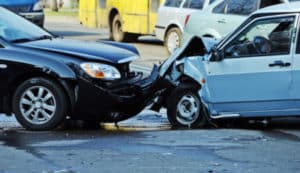Posted in Personal Injury Lawyer
Depositions after a car accident in Washington, D.C.
After a car accident occurs and a lawsuit is filed, both sides conduct “discovery,” where each party obtains information from the other.
Before 1938, according to Cornell Law, “plaintiffs basically had to be able to prove their case before filing suit.” In 1938, the Federal Rules of Civil Procedure (which included discovery) were adopted, changing the standard forever. According to Title V of the FRCP and its subsequent rules, all relevant facts and documents in a legal dispute must be provided to the other side. The rules for discovery are broad.
A key tool that is used for discovery is a deposition, which is what we’ll be going over in today’s post.
A deposition is a recorded question and answer session. The recording can be done by video, stenographer or audio, generally. Both you and the other party can be deposed in this session, which can take place in anywhere, be it y
our living room couch or a separate agreed upon location. Often, it takes place in the offices of one of the attorneys. You will likely have to review essential documents (think: police report, medical records, etc.).
The deposition can be as short as one hour, or as long as one week or more, and will cover everything from your personal background (like your educational and family history and employment background) to how the accident occurred, to the nature and extent of your injuries, and the progression of medical treatment.

Most of the time, depositions are attended by a small group of people. The group includes the person being deposed (the deponent), the defendant, the attorneys for both parties (if both parties have attorneys), and a person qualified to administer oaths. Testimony at a deposition is given under oath. Generally, the person qualified to administer oaths is a court reporter. He or she will also record and transcribe the deposition. Depositions are sometimes videotaped. Video depositions offer several benefits that are not available in orally recorded depositions.
The defendant’s attorney might wish to depose others, including witnesses to the accident, investigating police officers, and/or doctors who provided medical treatment for injuries sustained in the accident. The only requirement is that the person being deposed has information related to the lawsuit.
It is a good idea to have an attorney help you with your case. The attorneys at Cohen & Cohen are well-versed in automobile accidents. Contact us today at 202-955-4529 for a free case evaluation!































